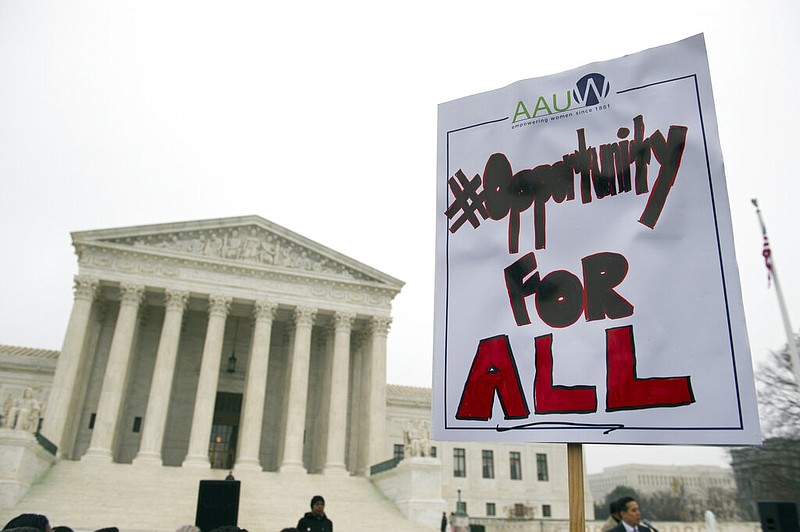The Arkansas Senate State Agencies and Governmental Affairs Committee on Thursday voted to amend a bill aimed at ending affirmative action programs in state and local government in Arkansas in order to give state agencies two years to implement the bill, if it's enacted into law.
Then, the committee voted to expunge the amendment to Senate Bill 71 by Sen. Dan Sullivan, R-Jonesboro. Sullivan said he intends to ask the full Senate to adopt his proposed amendment and then bring the amended bill back to the Senate committee for action.
Under the bill, "The state shall not discriminate against, or grant preferential treatment to, an individual or group on the basis of race, sex, color, ethnicity or national origin in matters of state employment, public education or state procurement," under a section of the bill which states that it would only apply to an action taken after the effective date of the measure.
The bill states this section of the bill does not prohibit the following matters:
• Consideration by the state of bona fide qualifications based on gender that are reasonably necessary to the normal functions of state government, public education or state procurement.
• Invalidate a court order or consent decree that is in force at the effective date of this measure.
• Prohibit an action necessary to establish or maintain eligibility for a federal program if ineligibility would demonstrably result in a loss of federal funds to the state.
• Preempt state discrimination law or federal discrimination law.
Under SB71, a person who negligently violates this section of the bill would be guilty of a Class A misdemeanor.
Under Sullivan's proposed amendment to the bill, all state agencies would be required to begin developing a plan to implement the bill, upon the effective date of the bill.
A Cabinet-level department secretary would be in violation of the bill if the secretary fails to be in full compliance with the bill within 24 months of adjournment of the 94th General Assembly in regular session under the proposed amendment to the bill.
